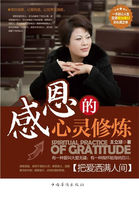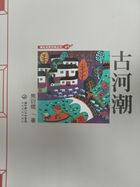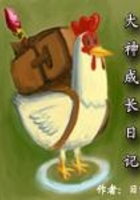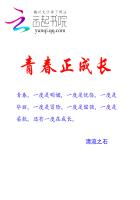From the Russian.
Once upon a time there was a peasant whose wife died, leaving him with two children--twins--a boy and a girl. For some years the poor man lived on alone with the children, caring for them as best he could; but everything in the house seemed to go wrong without a woman to look after it, and at last he made up his mind to marry again, feeling that a wife would bring peace and order to his household and take care of his motherless children. So he married, and in the following years several children were born to him; but peace and order did not come to the household. For the step-mother was very cruel to the twins, and beat them, and half-starved them, and constantly drove them out of the house; f or her one idea was to get them out of the way. All day she thought of nothing but how she should get rid of them; and at last an evil idea came into her head, and she determined to send them out into the great gloomy wood where a wicked witch lived.
And so one morning she spoke to them, saying:
'You have been such good children that I am going to send you to visit my granny, who lives in a dear little hut in the wood. You will have to wait upon her and serve her, but you will be well rewarded, for she will give you the best of everything.'
So the children left the house together; and the little sister, who was very wise for her years, said to the brother:
'We will first go and see our own dear grandmother, and tell her where our step-mother is sending us.'
And when the grandmother heard where they were going, she cried and said:
'You poor motherless children! How I pity you; and yet I can do nothing to help you! Your step-mother is not sending you to her granny, but to a wicked witch who lives in that great gloomy wood. Now listen to me, children. You must be civil and kind to everyone, and never say a cross word to anyone, and never touch a crumb belonging to anyone else. Who knows if, after all, help may not be sent to you?'
And she gave her grandchildren a bottle of milk and a piece of ham and a loaf of bread, and they set out for the great gloomy wood. When they reached it they saw in front of them, in the thickest of the trees, a queer little hut, and when they looked into it, there lay the witch, with her head on the threshold of the door, with one foot in one corner and the other in the other corner, and her knees cocked up, almost touching the ceiling.
'Who's there?' she snarled, in an awful voice, when she saw the children.
And they answered civilly, though they were so terrified that they hid behind one another, and said:
'Good-morning, granny; our step-mother has sent us to wait upon you, and serve you.'
'See that you do it well, then,' growled the witch. 'If I am pleased with you, I'll reward you; but if I am not, I'll put you in a pan and fry you in the oven--that's what I'll do with you, my pretty dears! You have been gently reared, but you'll find my work hard enough. See if you don't.'
And, so saying, she set the girl down to spin yarn, and she gave the boy a sieve in which to carry water from the well, and she herself went out into the wood. Now, as the girl was sitting at her distaff, weeping bitterly because she could not spin, she heard the sound of hundreds of little feet, and from every hole and corner in the hut mice came pattering along the floor, squeaking and saying:
'Little girl, why are your eyes so red?
If you want help, then give us some bread.'
And the girl gave them the bread that her grandmother had given her. Then the mice told her that the witch had a cat, and the cat was very fond of ham; if she would give the cat her ham, it would show her the way out of the wood, and in the meantime they would spin the yarn for her. So the girl set out to look for the cat, and, as she was hunting about, she met her brother, in great trouble because he could not carry water from the well in a sieve, as it came pouring out as fast as he put it in. And as she was trying to comfort him they heard a rustling of wings, and a flight of wrens alighted on the ground beside them. And the wrens said:
'Give us some crumbs, then you need not grieve.
For you'll find that water will stay in the sieve.'















